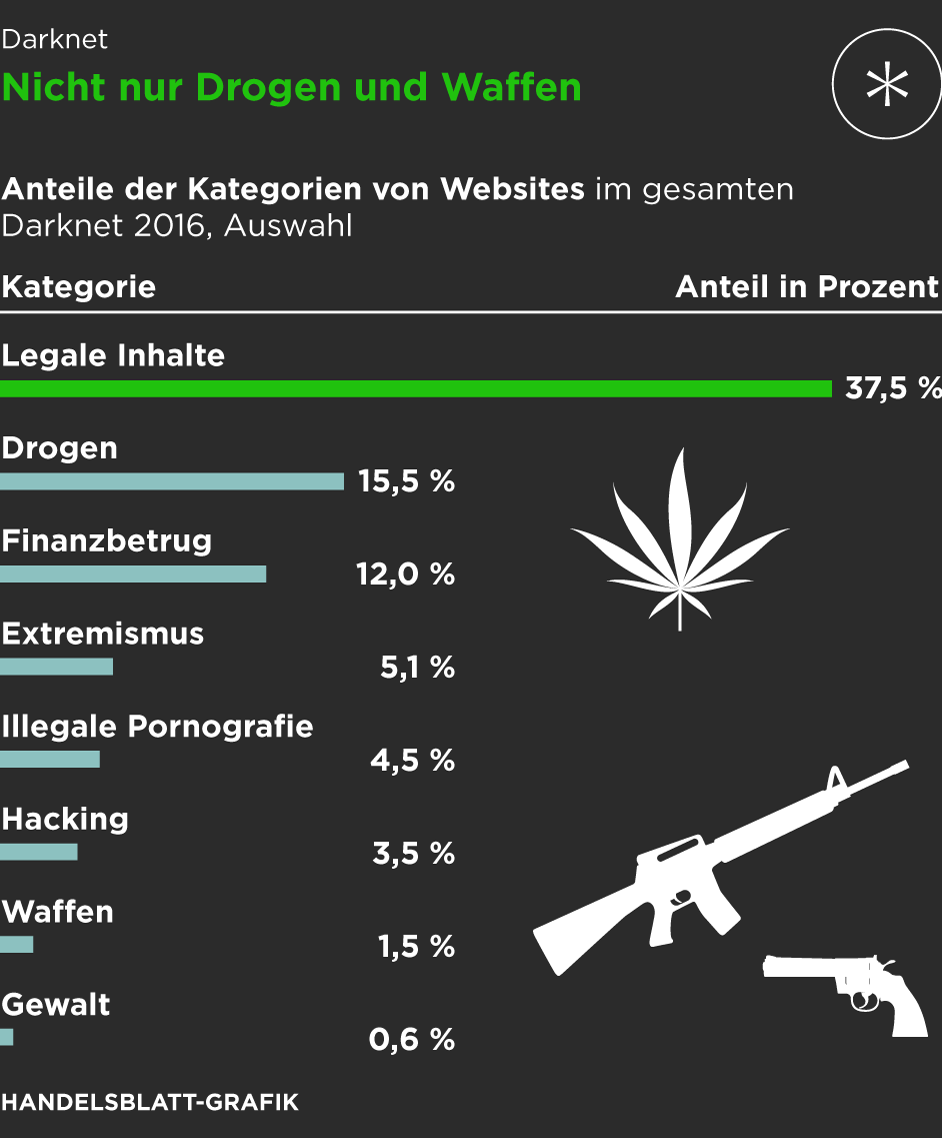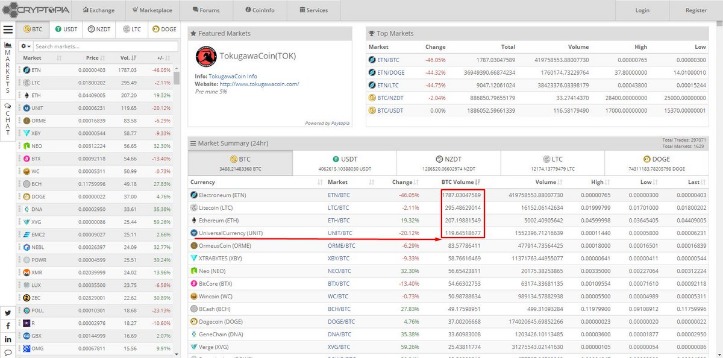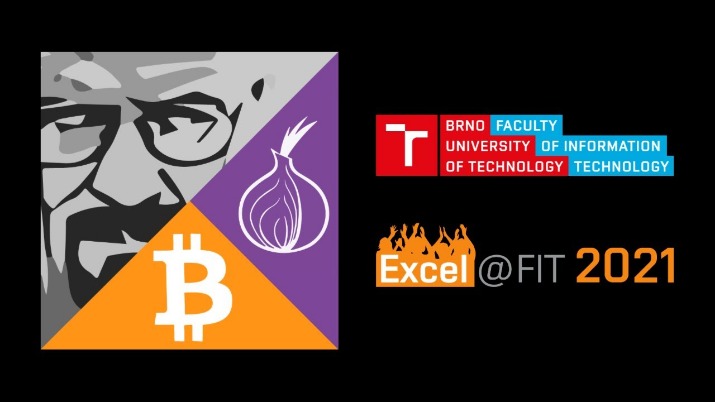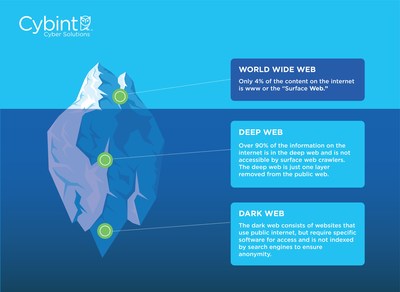Understanding Dark Market Onion Sites

Understanding dark market onion sites is essential for recognizing the complexities of anonymous online trading and information exchange. These hidden parts of the internet operate using encrypted protocols, making them difficult to detect and access through conventional means. Dark market onion platforms often facilitate various activities, ranging from legal to illicit transactions, by leveraging the anonymous nature of these networks. Exploring these sites provides insight into the challenges of cybersecurity, digital privacy, and law enforcement efforts to monitor illegal operations. For those interested in learning more about the dark market onion ecosystem, accessing resources and security tools can be a starting point for research and awareness.
Definition and Functionality
The dark market onion refers to online marketplaces operating on the deep web through the Tor network, utilizing “.onion” sites to ensure user anonymity and secure transactions. These marketplaces function as hidden platforms where a wide range of goods and services, often including illicit items, are bought and sold with relative privacy. The primary purpose of dark market onion sites is to facilitate anonymous trade by leveraging encryption and network architecture that obscures users’ identities and locations.
These sites are designed with layered security features and often have strict entry requirements to maintain trust among participants. They operate outside the reach of traditional internet surveillance and law enforcement, which makes them appealing for activities that require confidentiality. Usually, transactions on dark market onion sites are conducted using cryptocurrencies, such as Bitcoin, to further enhance privacy. Despite their association with illegal activities, some users utilize these platforms to access sensitive information or conduct legitimate transactions requiring confidentiality.
The functionality of dark market onion sites hinges on the principles of decentralization and anonymity provided by the Tor network. They typically feature user reviews, escrow services, and secure communication channels to facilitate safe exchanges. Due to their hidden nature, these sites play a significant role in the underground economy while challenging authorities to monitor and regulate such activities effectively.
Role of Onion Addresses in Dark Markets
Dark market onion sites are part of the hidden web environment that function beyond the reach of traditional internet search engines. These sites operate on the Tor network, providing anonymity for both vendors and buyers engaging in illegal or clandestine transactions. Accessed using specialized browsers, onion addresses serve as unique identifiers for these marketplaces and ensure secure, anonymous communication channels. Understanding the role of onion addresses in dark markets is essential, as they act as digital locations that facilitate various illicit activities, including the trade of weapons, drugs, and stolen data. Due to their encrypted nature, these sites are difficult for authorities to track, making them a prominent fixture in the underground economy. The anonymity provided by onion addresses is crucial for users seeking privacy, yet it also complicates efforts to regulate or shut down illegal operations within the dark web. These sites exemplify how technology intertwines with criminal activity, emphasizing the importance of cybersecurity awareness and law enforcement vigilance in addressing the challenges posed by dark market onion sites.

Popular Darknet Markets and Their Features
Darknet markets are online platforms that operate on the dark web, providing a wide range of illicit goods and services. Known for their anonymity and secure communication protocols, these markets have gained popularity among users seeking confidential transactions. Among the various dark markets, on the onion network, dark market onion stands out for its extensive offerings and robust security features. These platforms typically employ encryption and decentralized access, making them difficult to trace and shut down. Users can explore different market features, such as escrow services, multi-signature transactions, and encrypted messaging, ensuring a safer buying and selling experience. For more information on secure dark web marketplaces, you can visit a prominent dark market onion dedicated to safe browsing and commerce.
Hydra: A Case Study in Illicit Trade
Darknet markets, often accessed via the Tor network, serve as illicit marketplaces where users can buy and sell a variety of illegal goods and services. Among these platforms, onion-based markets are renowned for their anonymized operations and widespread use for trades involving drugs, stolen data, weapons, and other illegal items. Their decentralized and encrypted nature makes them difficult for law enforcement to infiltrate, contributing to their persistent presence on the dark web. A notable example within this space is Hydra, which has established itself as a dominant player in illicit trade through its sophisticated features and extensive user base.
Typically, dark market onion platforms differentiate themselves through several key features:
- Secure and Anonymous Transactions: Encrypted communications and cryptocurrency payment options ensure user privacy and transaction secrecy.
- User and Seller Anonymity: Use of pseudonymous usernames, escrow services, and layered obfuscation techniques protect identities.
- Extensive Product Listings: From narcotics to counterfeit documents, dark markets host a broad spectrum of illegal goods.
- Reputation and Feedback Systems: Buyers and sellers rate each other, which fosters a certain level of trust despite the illegal context.
- Moderation and Dispute Resolution: Systematic moderation helps maintain marketplace order and resolve disputes between parties.
Focusing on Hydra, this platform exemplifies many of these features with its user-friendly interface and robust security protocols. Hydra’s popularity stems from its reliable escrow service, large variety of vendors, and active community. Its operational model emphasizes anonymity and resilience, making it a case study in how illicit markets sustain themselves and adapt to law enforcement pressures. The platform’s extensive features and operational strategies highlight the ongoing challenges faced by authorities combating cyber-enabled illegal trade on the dark web.
Silk Road’s Impact and Legacy
Darknet markets, often accessed via the Tor network, have become known for facilitating anonymous transactions involving a wide array of illegal goods and services. These markets, sometimes referred to as dark market onion sites due to their use of “.onion” domains, enable users to buy and sell items such as illicit drugs, counterfeit documents, hacking tools, and other prohibited products while maintaining privacy and security. The features of these markets typically include escrow services, user reviews, encrypted messaging, and decentralized structures that make law enforcement investigation challenging.
One of the most influential dark markets in history was Silk Road, which revolutionized the darknet trading landscape. Launched in 2011, Silk Road introduced many users to the concept of a marketplace operating exclusively over the Tor network with a focus on Bitcoin transactions, enhancing anonymity for buyers and sellers alike. Its innovative use of escrow services helped establish trust in an environment rife with potential fraud and scams, setting new standards for darknet marketplaces.
Silk Road’s impact extended beyond simply providing a platform for illegal trade; it sparked a wave of copycat markets and increased interest from law enforcement agencies worldwide. The marketplace’s eventual shutdown in 2013 by authorities marked a significant event in the ongoing battle against darknet crime. However, its legacy persists in the continued evolution of dark market onion sites, many adopting similar features like multisignature escrow, user reputation systems, and advanced encryption protocols to remain resilient. As these markets adapt and evolve, they continue to influence the design and operation of newer platforms, shaping the landscape of anonymous online commerce.
Payment Methods on Dark Markets
Dark markets operating on the onion network have developed unique and complex systems for facilitating commerce, with payment methods being a critical aspect of their infrastructure. These platforms prioritize anonymity and security, offering a variety of payment options that cater to users seeking discreet transactions. Understanding the different payment methods used on dark markets can help users navigate this hidden economy more safely and effectively. Among the many options available, cryptocurrency remains the predominant choice, providing a layer of pseudonymity that traditional financial systems cannot offer. For those interested in exploring these underground marketplaces, knowledge of the various payment options is essential for ensuring secure and anonymous transactions, particularly on prominent sites like dark market onion networks.
Cryptocurrencies and Privacy Focus
Dark markets, often accessed through onion domains, serve as clandestine marketplaces where users can buy and sell a variety of goods and services outside the purview of traditional financial systems. One of the defining features of these platforms is their emphasis on privacy and anonymity, which heavily influences the choice of payment methods available to users.
Cryptocurrencies are the predominant mode of payment on dark markets, primarily because they offer a level of pseudonymity and ease of transfer that traditional payment methods cannot match. Bitcoin (BTC) has long been the preferred currency due to its widespread use and relative ease of access. However, for enhanced privacy, many users turn to cryptocurrencies like Monero (XMR) or Zcash (ZEC), which incorporate advanced encryption techniques to obscure transaction details, making it exceedingly difficult to trace transactions back to individuals.
Privacy-focused cryptocurrencies are integral to maintaining anonymity on dark markets such as dark market onion. These currencies allow users to conceal their identities and transaction histories, providing a layer of security against potential surveillance or law enforcement tracking. Consequently, the use of these privacy coins is considered essential for safeguarding user privacy and ensuring discreet transactions within these marketplaces.
While cryptocurrencies are the mainstay, some dark markets also accept additional forms of payment, including cash deposits through anonymized courier services or prepaid gift cards. Nonetheless, these methods tend to be less favored due to their vulnerability to compromise and reduced privacy benefits compared to cryptocurrencies.
Overall, the emphasis on privacy and anonymity shapes the payment landscape of dark markets. Cryptocurrencies, especially privacy-centric ones, remain crucial for users seeking to preserve confidentiality in their transactions, making them an integral component of the operational fabric of markets such as dark market onion.
Monero: A Preferred Currency for Anonymity
Dark markets hosted on onion networks have become a clandestine hub for various illegal transactions, where anonymity and secure payment methods are paramount. Among the numerous cryptocurrencies used in these environments, Monero stands out as a preferred currency due to its strong focus on user privacy. When engaging in transactions on dark markets onion, traders prioritize payment methods that minimize traceability and enhance confidentiality.
Monero is a decentralized cryptocurrency designed specifically for privacy and fungibility. Unlike Bitcoin and other transparent blockchains, Monero employs advanced cryptographic techniques such as ring signatures, stealth addresses, and confidential transactions. These features ensure that transaction details, including sender, receiver, and amount, remain concealed from outsiders, making Monero an ideal choice for dark market participants seeking to maintain anonymity.
Payment methods on dark markets onion utilizing Monero provide buyers and sellers with a high level of security against surveillance and tracking. This anonymity is crucial for users who are concerned about law enforcement or third-party monitoring. The integration of Monero into dark market platforms has contributed to its popularity, as it allows for discreet exchanges of goods and services without exposing personal information.
Additionally, Monero’s resistance to blockchain analysis makes it more resilient against forensic tracking compared to other cryptocurrencies. Transactions on dark markets onion conducted with Monero are often nearly impossible to trace back to individuals, fostering a safer environment for users prioritizing privacy. Consequently, Monero continues to be recognized as a preferred currency for those operating within the shadows of the internet.
Accessing Dark Web Markets
Accessing dark web markets can be a complex and cautious process, especially when exploring platforms like the dark market onion. These hidden marketplaces operate on the Tor network, providing anonymity to both buyers and sellers. Understanding how to safely navigate these environments is essential for those interested in lawful research or secure transactions. It’s important to research and use reputable sources to connect with trusted dark market onion sites, ensuring safety and privacy throughout the process.
Tools and Networks: Tor, I2P, and Riffle
The dark web offers a hidden layer of the internet that operates beyond the reach of standard search engines and traditional browsing methods. Accessing dark web markets, such as those hosted on onion sites, requires specialized tools and networks to ensure user anonymity and security. These platforms often facilitate a range of activities, which underscores the importance of understanding the underlying technologies involved in accessing these marketplaces.
One of the most widely used tools for accessing dark web markets is the Tor network. Tor, originating from “The Onion Router,” anonymizes user activity by routing internet traffic through multiple relays across the globe. This layered encryption helps conceal user identities and locations, making it difficult for anyone to trace activity back to the individual. Tor is integral for securely navigating onion sites hosted within the dark web, especially on marketplaces that trade in various goods and services.

Another network option is I2P (Invisible Internet Project), a decentralized, anonymous overlay network designed for secure and untraceable communication. Unlike Tor, which is optimized for accessing specific sites, I2P provides a broader environment for accessing a wide array of hidden services within its ecosystem. It offers user privacy and data confidentiality, making it a viable alternative for those seeking to explore or operate within dark market landscapes securely.
For more advanced or specialized needs, Riffle is an emerging peer-to-peer network technology designed to facilitate anonymous messaging and data sharing. Although it is less commonly used for browsing, Riffle aims to provide a high level of privacy and resistance to traffic analysis, making it suitable for discreet communication involved in dark market activities. As dark marketplaces on onion sites evolve, access to these networks and tools remains pivotal for users prioritizing security and anonymity.
- Users of the Dark Web will often use a VPN to hide their identity and location further, but accessing the Dark Web is not required.
- However, users must still connect to the dark web to visit these sites through Tor.
- There are currently several online darknet markets, but they tend to be incredibly volatile due to government intervention.
- Most Dark Web users use the TOR browser, which is designed to make the Dark Web easier to navigate.
Overall, understanding and utilizing these tools—Tor, I2P, and Riffle—are critical for safely navigating the dark web, including onion marketplaces. They serve as essential components in maintaining privacy and security in an environment where anonymity is often paramount. Engaging with dark market onion sites requires a careful approach to technology, awareness of legal implications, and a strong commitment to operational security.
Steps to Access Onion Sites Safely
Accessing dark web markets, particularly onion sites, requires careful preparation and understanding of the necessary precautions to ensure safety and anonymity. These sites are often used for various purposes, some legitimate and others illegal, which makes security paramount when navigating this hidden part of the internet. Users seeking to explore dark market onion sites must prioritize protecting their privacy and avoiding potential threats such as malware or illegal activities.
First, it’s essential to use a secure, privacy-focused browser such as Tor. Tor network encrypts your internet traffic and routes it through multiple nodes, helping to anonymize your identity and location. Downloading the official Tor Browser from the authorized website ensures authenticity and reduces the risk of malware infections. Once installed, launch the browser and configure it properly to maximize security.

Before attempting to access dark market onion sites, consider setting up additional security measures such as using a reliable Virtual Private Network (VPN) to further conceal your IP address. Keep your system updated with the latest security patches, and avoid downloading or opening suspicious files or links. When navigating onion sites, steer clear of sharing personal information or performing transactions without proper verification, as these activities can compromise your safety.
It is also advisable to use digital wallets or cryptocurrencies carefully, ensuring they are used exclusively for dark web activities and kept separate from your personal accounts. Remember that engaging in activities on dark market onion sites carries legal and ethical risks, so it is vital to understand the laws applicable in your jurisdiction. Proceeding cautiously and with informed awareness is key when exploring this hidden segment of the internet.
Activities and Goods Traded on Dark Markets
Dark markets, often operating on the hidden layers of the internet, facilitate the trade of a wide range of activities and goods that are typically inaccessible through conventional online channels. These clandestine platforms, including the well-known dark market onion sites, provide a marketplace for goods and services that span from legal to illicit. Understanding the scope of activities and items traded in these environments is crucial for grasping their impact on digital security, privacy, and law enforcement efforts. Many of these markets enable anonymous transactions, making it difficult to trace participants and regulate exchanges.
These marketplaces often feature a variety of goods, including digital currencies, hacking tools, counterfeit documents, and sometimes illegal substances. The anonymity provided by the dark web allows vendors and buyers to operate with a lower risk of detection. One prominent example of a dark market onion is known for hosting vast arrays of illicit products and services, accessible through specialized browsers and encrypted connections. To explore more about these underground economies, users often turn to dedicated dark market onion sites, which serve as hubs for these discreet transactions.
Illicit Commodities
The dark market onion refers to the hidden sectors of the internet where illicit activities and transactions take place. These anonymous marketplaces operate beyond the reach of traditional law enforcement, utilizing encryption and anonymity networks to facilitate a wide range of illegal activities. One of the key features of these markets is the trade of various goods and services that are forbidden or heavily regulated in the legal economy.
On dark markets onion, the range of activities includes the trading of illicit commodities such as drugs, firearms, counterfeit currencies, stolen data, and hacked accounts. These goods are often available at competitive prices, attracting buyers from around the world seeking discreet and untraceable transactions. Additionally, the marketplace supports activities related to hacking tools, malicious software, and other cybercriminal services, making it a hub for digital crimes.
Illicit commodities traded on these platforms pose significant challenges to law enforcement agencies globally. They not only facilitate criminal enterprises but also contribute to broader issues such as violence, addiction, and financial fraud. Despite ongoing efforts to dismantle these markets, they continue to evolve, with users and vendors employing new security measures to evade detection.
The operation of dark market onion underscores the importance of cybersecurity and law enforcement collaboration in combating illegal trading activities online. Awareness and education about the risks associated with engaging in these markets are essential in mitigating their impact on society. As technology advances, so too does the complexity of these illicit networks, highlighting the need for continued vigilance and innovative strategies to disrupt their operations.
Services Provided
Dark markets on the onion network are online platforms that facilitate the exchange of various goods and services outside the reach of traditional legal systems. These markets operate primarily through anonymous browsing tools, such as the Tor network, ensuring user privacy and security. They serve as digital black markets where a wide range of activities take place, often involving items and services that are prohibited or heavily regulated in mainstream commerce.
Activities on dark markets typically include the trading of illegal goods such as drugs, firearms, counterfeit currencies, and stolen data. The scope also extends to the provision of illicit services, including hacking, fraud, and identity theft assistance. These platforms often employ sophisticated mechanisms for trade, including escrow services and reputation systems, to facilitate transactions while minimizing risks for participants.
The goods traded on dark markets encompass a broad spectrum, from narcotics to unlicensed pharmaceuticals, illegal software, and hacking tools. On the other side, services such as hacking into systems, crafting counterfeit documents, and offering malicious software development are commonly available. The demand for such items and services is driven by the desire for anonymity and the ability to access illegal markets without geographical restrictions.
The specific example of the dark market onion illustrates how these platforms operate on the hidden web, maintaining user confidentiality and transaction security. While these markets provide a hub for illicit trade, they also pose serious challenges to law enforcement agencies around the world due to their anonymous nature and decentralized architecture.
Overall, activities and goods traded on dark markets like the dark market onion highlight the ongoing risks and complexities associated with digital black markets, emphasizing the importance of cybersecurity and legal enforcement in combating illegal online activities.
Legal and Security Risks
Engaging with the dark market onion ecosystem involves navigating a complex landscape fraught with legal and security risks. These underground marketplaces often operate beyond the reach of conventional law enforcement, but that does not make involvement risk-free. Participants must be aware of potential legal consequences, including criminal charges, as well as security threats such as data breaches, scams, and malware. Understanding these risks is crucial for anyone considering exploring the dark market onion, as the clandestine nature of these platforms means that security precautions can easily be compromised. It is essential to stay informed about the legal and security implications to make educated decisions and protect oneself in this risky digital environment.
Law Enforcement and Undercover Operations
The dark market onion ecosystem presents a complex landscape that raises significant legal and security concerns. Due to the anonymous nature of onion websites, law enforcement agencies often face challenges in tracking illicit activities, including drug trafficking, weapons sales, and cybercrime. These platforms enable users to engage in transactions without revealing their identities, which complicates efforts to enforce laws and prosecute offenders. Operating within this environment involves navigating risks related to infiltration, surveillance, and undercover operations by authorities seeking to dismantle illegal networks.
Law enforcement agencies around the world have developed specialized techniques to monitor and infiltrate dark market onion sites. Undercover operations are frequently deployed to gather intelligence, identify key players, and disrupt criminal enterprises. However, these operations carry inherent risks, including the possibility of suspects retaliating against undercover agents or compromising ongoing investigations. Additionally, the use of encryption and anonymity tools makes it difficult to attribute activities directly to individuals, creating legal obstacles in establishing evidence and securing convictions.
Legal risks extend beyond law enforcement pursuits. Participants on dark market onion sites also face the threat of civil and criminal liabilities if caught engaging in illegal activities. Penalties can include hefty fines, imprisonment, and damage to personal or organizational reputations. Furthermore, the rise of governmental and international agency efforts to regulate and shut down these platforms underscores the importance of understanding the legal framework surrounding such activities. Overall, engaging in or facilitating activity on a dark market onion site entails significant security and legal dangers that individuals and organizations should carefully consider.
Common Scams and Fraud Tactics
The dark market onions are part of the hidden corners of the internet that operate outside the realm of legal oversight, often facilitating illegal transactions and activities. Engaging with these markets poses significant legal and security risks, as users may unknowingly violate laws related to drugs, counterfeit goods, or other prohibited items. Law enforcement agencies actively monitor and investigate these platforms, making participation potentially punishable by severe legal consequences. Additionally, users risk exposure to malware, hacking, and data breaches designed to steal personal information or financial details.
Common scams within dark market onion sites include phishing schemes, where scammers impersonate trusted vendors to steal sensitive information. Fraud tactics also involve fake listings, where counterfeit or non-existent products are advertised, enticing buyers to send money upfront with no delivery in return. Vendors may also employ escrow manipulation, releasing funds only after delaying or denying shipment, thereby defrauding unsuspecting buyers. The unregulated nature of these markets means there is little recourse for victims if transactions go awry, increasing the vulnerability of all parties involved.
Understanding the risks associated with dark market onion sites is crucial for online safety. Users should be aware of the prevalence of scams and fraud tactics, and exercise caution if they choose to explore these hidden markets. The potential for legal repercussions and security breaches far outweighs any perceived benefits. Recognizing these dangers can help individuals better protect themselves from exploitation and unlawful activity in these clandestine corners of the internet.
Legal Uses and Ethical Considerations
Understanding the legal uses and ethical considerations surrounding dark market onion sites is essential for anyone exploring this complex digital landscape. While these hidden marketplaces often operate outside traditional legal frameworks, they can serve legitimate purposes such as protecting privacy or facilitating free expression in oppressive regimes. However, engaging with dark market onion sites also raises significant ethical questions regarding the procurement of illicit goods and services. It is crucial for users to be aware of the potential legal risks and moral implications associated with these platforms. For those interested in learning more about the darker corners of the internet, exploring resources such as dark market onion can provide valuable insights into their structure and purpose.
Protection for Activists and Journalists
The dark market onion networks have garnered significant attention due to their reputation for hosting anonymous marketplaces where illicit goods and services are often traded. Engaging with these platforms raises critical questions related to legal uses and ethical considerations, especially for activists and journalists who operate under high-risk circumstances. While some individuals may seek access to these networks to gather intelligence or support causes that face censorship or suppression, it is essential to understand the legal boundaries and ethical implications involved. The use of dark market onion sites must be carefully evaluated to avoid legal repercussions, as activities such as drug trafficking, human trafficking, or illegal weapon sales are typically criminal offenses. Ethical considerations revolve around ensuring that information and actions do not contribute to harm or enable illegal activities.
For activists and journalists, protection on the dark market onion is a paramount concern. These individuals often rely on the anonymity and security offered by onion networks to expose corruption, report on human rights abuses, or assist marginalized communities. Implementing robust security practices, such as utilizing encrypted communication tools and safeguarding digital identities, is vital for their safety. Legal protections can also be bolstered by understanding applicable laws and working within the boundaries of legal frameworks while leveraging the anonymity features of onion sites. Recognizing the potential risks and ethical responsibilities helps ensure that engagement with these networks supports positive change without inadvertently facilitating criminal enterprise or compromising personal safety.
Secure Communication for Sensitive Information
Engaging with dark market onion sites involves significant ethical and legal considerations that must be carefully evaluated. These hidden marketplaces often facilitate the trade of illicit goods and services, raising concerns about legality and morality. Participants should be aware that accessing or conducting transactions on these platforms may violate local and international laws, potentially leading to severe legal consequences. It is crucial to prioritize ethical conduct and adherence to legal standards when exploring online spaces, especially those associated with the dark web.
Ensuring secure communication is vital when handling sensitive information related to dark market onion activities. Utilizing robust encryption methods and secure messaging protocols helps protect identities and transaction details from interception or malicious attacks. Employing tools such as VPNs, Tor browser, and end-to-end encrypted communication channels can enhance privacy and minimize exposure to surveillance or cyber threats. Responsible users recognize that maintaining strong security practices is essential to safeguard their personal information and uphold ethical standards in these clandestine environments.


